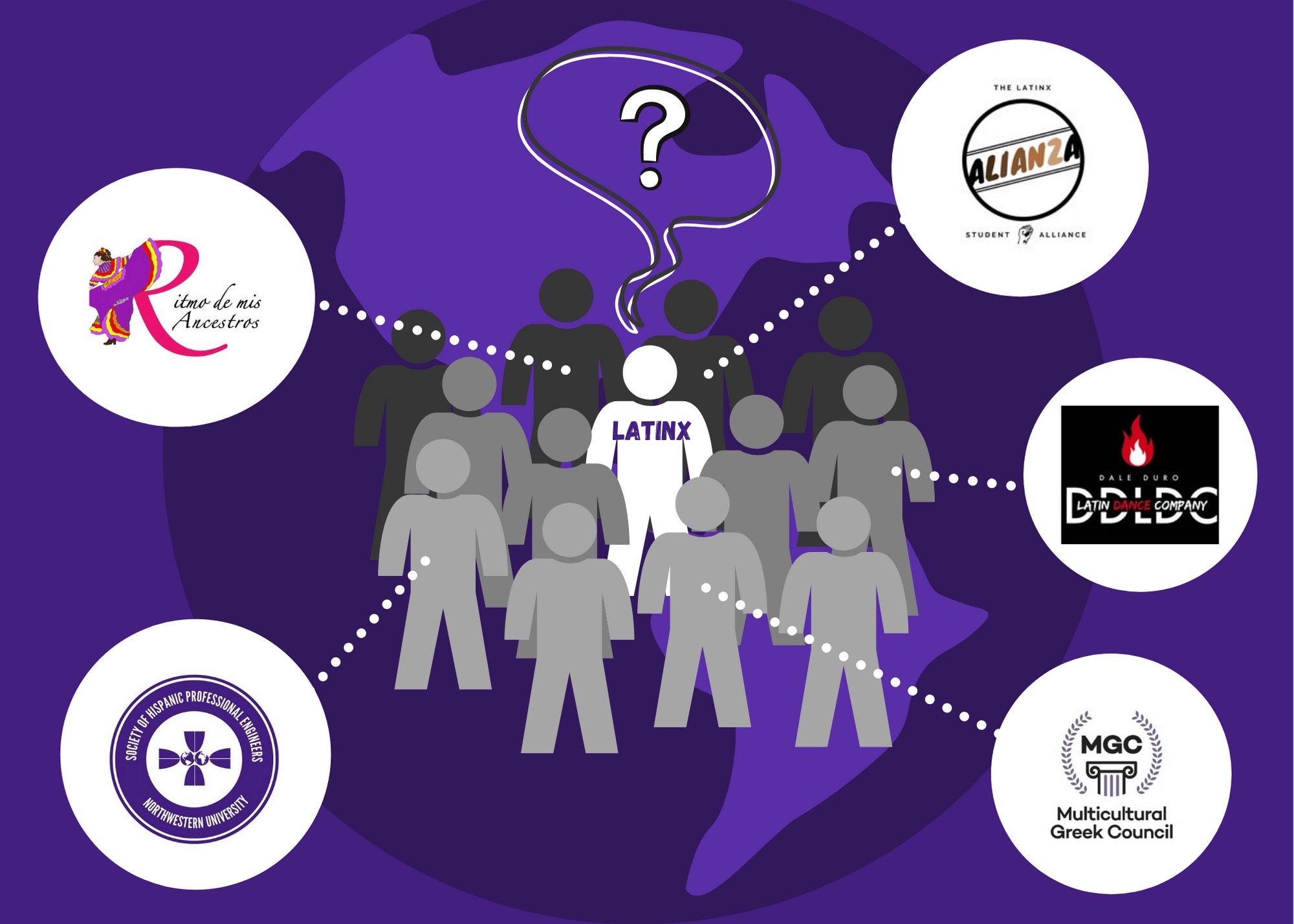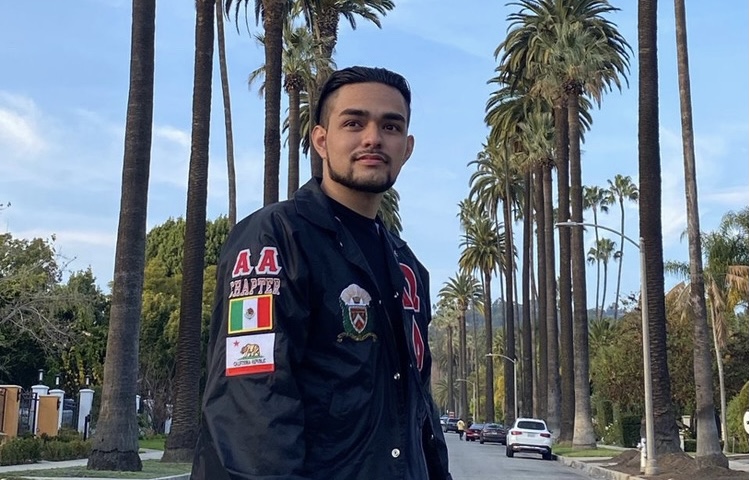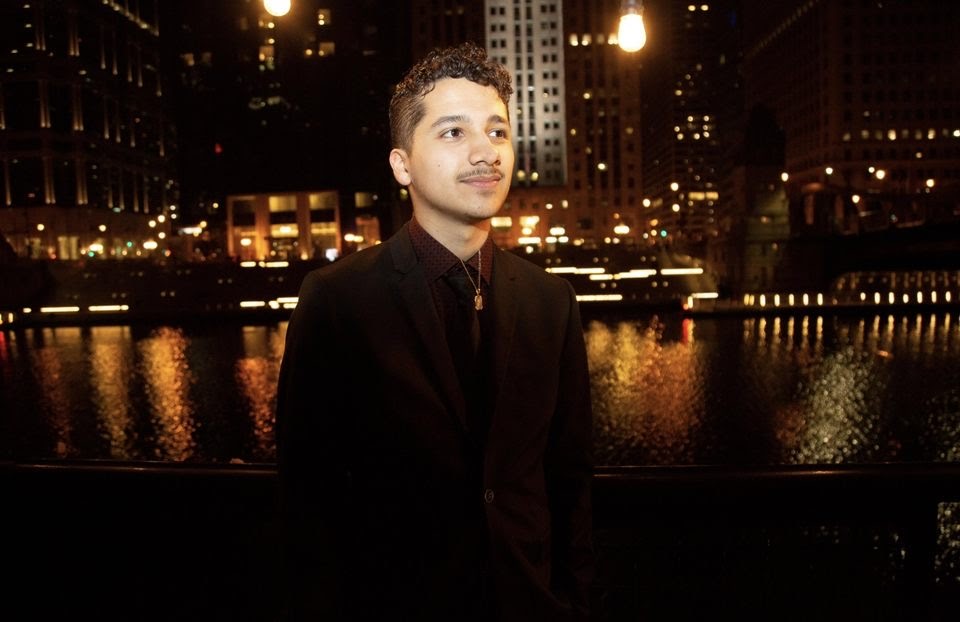
On what felt like a normal Monday, May 24, Luis Zaragoza was scrolling through his Twitter feed. With one thumb moving aimlessly across his phone screen, the McCormick junior stumbled upon a tweet posted that same day by first-year Marcos Rios. In a five-part thread, Rios managed to put into words the feeling that Zaragoza had been carrying since he arrived at Northwestern in 2018.
“I think the most disappointing thing about this place for me is the lack of a Latinx community,” said Rios on Twitter. “I came from [high school] expecting to find a place where I could engage with my culture in a way that I couldn't in [high school] and I was sorely disappointed to find various upperclassmen who had the same thoughts as me: that there wasn't a place I could go to where I could just experience a shared background that I had never had before.”
Zaragoza had spoken previously to Rios at an event hosted by the Society of Hispanic Professional Engineers. Zaragoza said that despite seeing some events for the Latinx community through different clubs on campus, the visibility and engagement with the community had not changed significantly during his time at Northwestern.
But on that Monday, Zaragoza was inspired by Rios’s moment of refreshing honesty. He took to the NU Latinx community GroupMe and called attention to Rios’ tweets. Zaragoza watched as several other Latinx students responded with similar calls for increased efforts at affinity between them and participation in Latinx-based organizations on campus.
Zaragoza and around 30 other active people in the GroupMe agreed; there isn’t a unified Latinx community on campus. But why is this community missing, and why do some students find its absence so consequential?
Culture shock or lack-of-culture shock?
In his tweet, Marcos Rios shared how the Latinx community at Northwestern, one he believed would be vibrant, fell short of his expectations.
“Engaging in my identity was something that I was looking forward to, especially after years of being in mostly white spaces,” Rios wrote on Twitter. “Even at my majority-minority [high school], the programs I was in did not look like me. Here, I have found other Latinx students, but I am not part of a unified community, and it sucks. It sucks knowing that I'm many miles away from the only sources of Colombian culture I've engaged with (my fam).”
Culture shock. For some students, it feels like a loss of comfort, or of a cultural familiarity you didn’t realize was prominent in your life. For other students, it’s adjusting parts of yourself to accommodate the comforts of people who don’t share your culture.
Ximena Muñoz, a first-year in the School of Communications, said she felt compelled to deemphasize Latin aspects of her personality after interactions with non-Latinx students at Northwestern. It was a change in her self-definition from her time with other Latinx people in high school in Chicago.
“I always grew up thinking I wasn’t Mexican enough or I was white-passing. But here at Northwestern, I definitely noticed that I’m the odd one out. I’m definitely not white at this school,” Muñoz said.
Alberto De La Isla, a sophomore in Weinberg, was hit with culture shock when he realized people at NU did not know how to pronounce his name, so he switched his email address and nickname to “Albert.” But he also chose to display a Mexican flag in his room to remind him of his heritage.

“You’re kind of forced to embrace your culture and make it known here if you want that part of you to survive, because no one else is going to do it for you,” De La Isla said.
On the other hand, several Latinx students described something different: a lack-of-culture shock. Joselyn Chavez, a sophomore in SESP, explained that she had trouble being open and proud of her authentic self in her first year. She found that the problem wasn’t the culture she had grown up with or an overabundance of white people at Northwestern. She just couldn’t find a cultural space for Latinx people like her.
“In Northwestern, you can go a year without finding anybody that you can connect with, if you actually don’t look for it. And that’s what really shocked me,” Chavez said.
Not finding meaningful connections is not a uniquely Latinx experience at Northwestern. But it is a common one.
“I wasn’t really expecting a lot because we are a predominantly white institution, but I at least expected that the camaraderie that I see among other groups on campus would also be seen with Latinx people,” said Medill first-year Diego Ramos.
The shock of no community is an experience that many students said is a result of looking for people with a shared identity when the pool they draw from is small.
Knowing this, School of Communications first-year Marlene Alanis put their sentiments in simple terms: It sucks. Alanis believed that people would be yearning for community in college. “Perhaps it’s my own fault for not attending programming,” she said.
Pockets and programming
As more Latinx students explore their own experiences with alienation at NU, the present circumstance creates a vacuum. It would seem natural that club activities, events or programming for Latinx students would grow to fill the void that Zaragoza has felt since 2018. But the reality is much more complicated.
“I know there's a lot of small Latinx communities like Dale Duro, SHPE (shameless plug), multicultural Greek orgs, and more, but they all feel like their own pockets rather than a larger community,” Zaragoza said on GroupMe.
For some students, the smaller pockets of community that Zaragoza describes are important spaces for cultural connection.
“For me one of the things that helped was joining Ballet Folklórico, which is the traditional Mexican dance group on campus,” De La Isla said. “That was my first family on campus, a place that felt like a home away from home.”
Zaragoza himself is president of the Society of Hispanic Professional Engineers, a group for McCormick Latinx students. Coming from a first generation and low-income background, Zaragoza said it was difficult to not have upperclassmen who could guide him during his first year. SHPE was a huge comfort after seeing few people who looked like him in his engineering classes.
On the ground floor of the Norris Student Center, across from Patty Squared and visible through glass doors is the Multicultural Greek Council (MGC) office. Some Greek organizations within it are Latinx-interest based. For Ximena Muñoz, her multicultural sorority has become her go-to safe space.
“I feel like that’s my Latino community at Northwestern. We’re a pretty small sorority, but they’re definitely my people, and I can go to them whenever I’m feeling like I don’t belong,” Muñoz said.

Outside of the Latinx community she has found through her sorority, Muñoz notes, the Latinx students she has met more broadly do not feel to her like a genuine community presence on campus.
Joselyn Chavez, who is also in Kappa Delta Chi, credits her growth and openness to her finding “a little home” on campus. “Having that safe space, I think I’m more lenient with giving my full self and being proud of it,” Chavez said.
But the problem is the event programming.
Other clubs like the Brazilian Student Association, the National Association of Hispanic Journalists, and Destino have also been working to bring together pockets of the Latinx community. Some have been able to do that even despite the pandemic. For instance, Dale Duro recently hosted a virtual version of their annual showcase.
On the other hand, the Ballet Folklórico club has been mostly inactive and only publishes weekly newsletters, according to De La Isla. Smaller organizations like SPHE have had less attendance to virtual events.
And despite the efforts for smaller Zoom communities, Ramos explained that Zoom fatigue and academic stress are important factors for his not attending virtual programming.
“Even when I know that there are Latinx events being held or that there are moments where la comunidad wants to get together, I’ve just been so bombarded with work that it’s been difficult for me to actively make an effort to join and reach out to these people,” Ramos said.
While Jimena Collado, the president of Dale Duro, is happy to have found her “niche,” she noted in her GroupMe response to Zaragoza that not everyone is a dancer like her. Not every Latinx person is in McCormick or interested in Mexican ballet folklórico. And not every Latinx person wants to get involved in Greek life.
As these clubs and organizations cater to special interests or certain identities within the Latinx community, the question remains: in a world that is just now beginning to re-enter normalcy, what is left for the Latinx students who don’t share these interests and who haven’t been enticed by existing club programming but still want a community on campus? What happens if you didn’t even know there’s a Latinx GroupMe?
What Are We Missing?
The great irony of Marcos Rios’s tweet inspiring a larger discussion about community on campus in the Latinx students GroupMe is that Marcos Rios was not actually in the GroupMe until that discussion. About halfway through the conversation, a little bar popped up across the screen. “Marcos Rios has joined the group.”
Programming over Zoom has shined a light on the separation between these different pockets of community, and the lack of spaces for people who haven’t joined these pockets. As each club and organization hosts its own events online, these spaces are virtually established as distinct entities. According to Luis Zaragoza, this was true even before programming transitioned to Zoom.
“I think it’s because of how secluded each club is to itself,” Zaragoza said. “There’s almost no intermixing, and one group doesn’t know about the other. I think that’s just the general issue where we have smaller pockets, smaller communities within the Latinx community, but there’s no overarching structure to unite us all.”

But for many years, uniting and engaging the larger Latinx community has been the goal of one bigger student group called Alianza.
Teresa Vergara Miranda, a junior in SESP, is on the executive board for Alianza. For her, college has been an opportunity to come to terms with her identity and understand it, which she has found to be a large task on its own. But the combination of understanding her Latinx identity and position in the university, and having to start programming every year from scratch, comes at a cost.
“It’s a burden to realize where you are in your position at this university and then realize that you also have to do a lot of work to maintain that position,” Vergara Miranda said.
In the GroupMe conversation that Zaragoza launched on that Monday night, the dialogue drifted briefly into Alianza’s successes and missteps. Latinx GroupMe member Danny Rodriguez noted that before COVID, Alianza had weekly meetings. Rodriguez also recalled how Alianza had been rebranding after a previous controversy that their spaces were excluding Afro-Latinx people.
But since the pandemic, some GroupMe members noted clubs including Alianza have not been active with their communication aside from larger events like Festival LatiNU. This event usually includes dance performances and an opportunity for the larger Latinx community to share one space. Because of COVID restrictions, the event was held over Zoom.
Vergara Miranda explains Alianza’s greatest challenge has been creating consistent virtual programming and uniting a community over the Internet. She responded to the GroupMe conversation, explaining how Alianza’s structure and goals are committed to remaining flexible to the community’s needs. Vergara Miranda noted she is proud of how Alianza’s executive board and other Latinx clubs have navigated the pandemic, despite the criticisms.
But with Alianza not hosting as many events, the gap between the pockets of the community on campus and the students who haven’t joined remains unbridged.
“Throughout the years I think Alianza has done some awesome things, but I think they’re just not visible enough,” Zaragoza said. “It’s hard to stay in the loop because there’s no active updates, no fliers circulating, not much social media presence. I think a lot of people, including myself, associate them as their own group, putting on events for the whole community.”
Zaragoza concluded, “But those events don’t always reach the whole community.”
Finding Latinx on campus
Whether it’s smaller pockets through special-interest clubs that may not speak to the entire community, or a larger organization like Alianza that is struggling in the pandemic to bring together the Latinx population, students identified a missing piece in the Latinx experience at Northwestern.
“It’s such a big part of your lived experience,” Alanis said. “It can be isolating to not be with other people who understand you without you having to explain yourself. It really does matter in terms of making it a less isolating experience and supporting each other in hardships and in good times.”

To Alanis, Latinx culture is inherently community-oriented, so not having a community on campus feels antithetical to Latinx culture. Alanis believes the lack of unity at Northwestern isn’t because of any one person or any one club. But the importance of community to Latinx culture makes it important to continue cultivating Latinx spaces at Northwestern.
“Just having that safe space to go to where you can be yourself and you’re around people who look like you, who sound like you, who share similar experiences and understand what you might be going through, especially if you’re first generation. Those are the big impacts,” Alberto De La Isla said.
In his text to the Latinx GroupMe, Zaragoza said that he believes a larger committee working with clubs like Alianza, drawing leaders from other Latinx organizations and keeping up constant communication would be a more effective way to bolster unity at Northwestern.
“I feel like even now as a junior, I still hardly know Latinx people on this campus. If we have more events to socialize and they were more visible or public, that’s something that I hope would change in the future,” Zaragoza said.
After Zaragoza’s text, students in the Latinx GroupMe began planning get-togethers during finals week and over summer break, in addition to Zoom spaces for Latinx students to discuss how to move forward with building community.
For Chavez, the first step in moving toward a more unified community is being open to finding Latinx people and embracing them.
“We’re dying for more. We really are excited to find people. I feel like if you reach out to a Latinx person, they’ll take you under their wing because we’ve all been there, whether it’s in elementary school or high school or now,” Chavez said. “So make sure to sign up and go to things, because you never know who you’ll meet.”
*A previous version of this article incorrectly stated that some Multicultural Greek Council organizations are "exclusive to Latinx students." We have updated the article to reflect that members do not need to hold a certain identity to be part of an MGC organization. NBN regrets the error.